|
How do you regard dragonflies? In one of his great poems (As Kingfishers Catch Fire), the poet Gerard Manley Hopkins not only encourages us to be like them, but, in so doing, to be like Christ. Not everyone has always agreed however. In early colonial Australia for example, white fellas tried to kill dragonflies, just as they/we tried to kill so many other life-giving things that they/we did not understand. Those early colonialists saw dragonflies flying around and landing on their valuable horses, and they saw the horses moving and flicking their tails. So they thought the dragonflies were biting and making them crook. The colonialists were making things worse. The dragonflies were actually eating the mosquitoes and the gnats that were troubling the horses. They were life-givers, saviours even, not devils in disguise. In so many positive ways, dragonflies are thus evocative symbols for transgender people today. For, on this Transgender Day of Remembrance, we do well to attend to how bearers of light have been treated as embodiments of darkness. We do well, as our Gospel today (Luke 23.32-43) reminds us, to remember how Jesus was not crucified alone, and how others are also crucified today. And above all, we do well to affirm that it is only in recognising the light, in strange places, that we find salvation and hope for us all…
0 Comments
One of the major challenges for both Faith bodies, like Churches, and for the wider society is taking marginalised people seriously in their/our own right. 'Inclusion' is for example a frequently used term among those who express some interest and support of transgender people. Yet perhaps, as Marcella Althaus-Reid outlined, it is recognising the voices and bodies and socio-economic realities of 'indecency' in people's lives that is the real faith gift and challenge. Too much 'inclusion' keeps the frameworks in place, coopting a few individuals or making a few, sometimes quite superficial, changes. As with meeting the challenges of race, 'cheap grace' is all too easy. Theologically however, was Jesus however about 'inclusion', or constantly speaking, acting, and embodying 'indecency'?
A Prayer of Blessing for LGBTIQ+ Celebrations
by Josephine Inkpin, written for Sydney Mardi Gras 2022 Kaleidoscopic Spirit, You dance among us in a glorious riot of expression, embodying afresh the generous love of Jesus, and all who have embraced love at the heart of being. Bless all who gather at this time to celebrate the gifts of sexual and gender diversity. As you have inexhaustible pride in your rainbow children so may we have such life-bearing strength in ourselves and in one another. Touch our lives and bodies with your transforming Love, shining light where there has been darkness, bringing healing where there has been hurt, and making visible what has hitherto been invisible. Inspire us to deeper intimacy and interconnection, opening up the closets of all that remains damagingly repressed, and leading us along fresh pathways of hope to a more joyous and glittering future for us all. 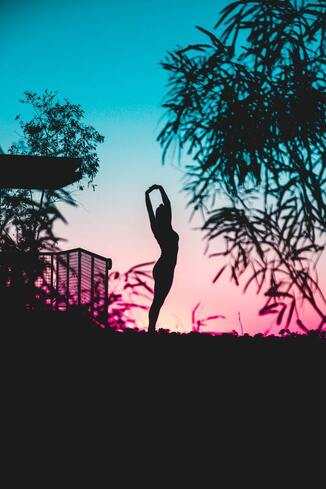 ‘The Body doesn’t lie’, they say. Well, certainly it can powerfully reveal and prompt us to the truth. Years ago, for example, I remember a yoga teacher asking me to curl up into the foetal position and give myself a hug, expressing my love for myself. But I simply couldn’t manage it. I took up position, but my arms just wouldn’t do it. Even when I actively exercised my mind to give myself the appearance of a hug, my body would not obey. For you cannot simply command love. It has to be received, acknowledged, and embodied. Or, to put it another way, love has to be breathed in and breathed out. All of this takes us to the heart of Jesus’ teaching about the commandments (in Mark 12.28-34), and to the core of the Biblical tradition… 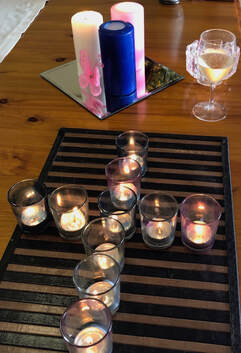 'I will not be silent, nor hidden forever. For I am a transgender woman and I will come to birth. Though my birthing is painful, messy and rocks the cradle, it offers tidings of great joy, and a more just, diverse and beautiful world. It overturns powers and principalities, lifting up the lowly, ransoming my people from darkness, silence and death.' - so begins the reflection below, entitled I Am That I Will Be: for the transgender Christa who is coming to birth (after Marcella Althaus Reid). I wrote this recently on retreat, pondering the great themes of Advent (particularly regarding Mary and the birthing of Christ(a)) in the context of the continuing struggles of transgender people to come fully to birth in our world, in its secular and religious spaces. It is an affirmation of transgender strength and joy in the midst of current birth-pangs, and of the promise contained in the liberation of gender diverse people. It is, in part, a tribute to Marcella Althaus Reid, for her contribution in opening up the way spiritually, not least through her proclamation and call to Indecent Theology. Just as she encouraged us to rework our received ideas and symbols by embracing the experience of the despised and marginalised, so my own cry is for the liberating story of Mary and her child to be revisited and reshaped by transgender experience. It is thus partly a protest against the taming, and spiritually over-decorous confining of Mary and her child, in the transforming spirit of the Magnificat and the renaming and reordering of God and world. It is not intended to dismiss the life-giving insights others find in traditional readings of Advent or aspects of Mariology. It is however a contribution to greater light and generative life in this season and beyond... 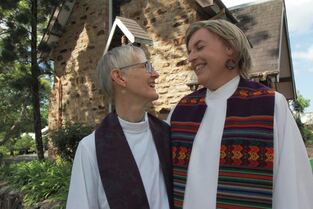 ‘I didn’t marry a gender. I married a person.’ - this has always been a truth of our marriage, before and after Josephine came out as a transgender woman. Just as God ‘looks on the heart’ not ‘outward appearance’ (1 Samuel 16.7), our gender and sexuality are not the core of our lasting relationship. What matters is the love we have for one another, part of God’s greater love. In that way, ‘rainbow marriage’ is also a gift for all... 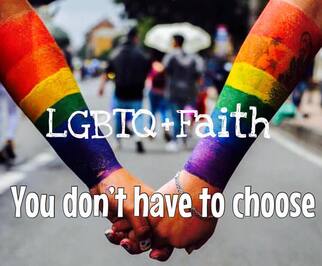 I speak today as both a proud member of our LGBTIQA+ community, and also as a dedicated person of faith, indeed as an Anglican priest. I do so, because people like me are typically erased, our lives and voices ignored. Yet we queer people of faith do exist! - and we are increasingly seeking to be visible. For our very existence gives lie to the monstrous misuse of religion for political ends. We suffer particularly profoundly from religious discrimination. We do not want religious exemptions which hurt us and others, and betray the heart of who we are. We also know that the majority of our fellow Australians of faith agree with us, as we saw in that dreadful postal survey. So we’ve tried to lobby, spoken to Government inquiries, sought to be part of desperately needed change. Yet, as queer people of faith, our rights to religious expression are seldom recognised... 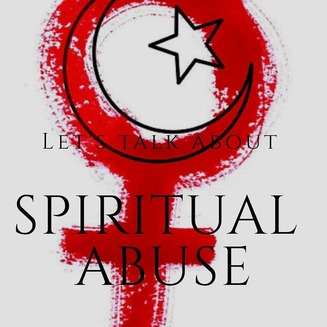 I've spent some of the night crying. For yesterday a beautiful trans man who has just come out thanked me for 'showing that I wouldn't lose God when I transitioned.' Part of me is so grateful, as sharing that truth is one of the reasons I remain, and rejoice to be, a priest. Part of me however is cut, beyond the heart, to the depths of my soul. Indeed I'm somewhat distraught, and, justifiably, not a little angry. For I've been where my friend has been traveling and it hurts. It really hurts. It is like journeying in the depths of hell. Some of us never make it through and our cries of pain continue to echo. My friend's words voice this so often hidden reality. For how dare anyone, any faith, any spiritual group, plant the thought that some of us can be cut off from the love of God, simply for being who we are created to be. Only slowly is the depth of this appalling spiritual abuse beginning to be revealed. It must not be allowed to continue. May our tears help swell the rivers of compassion and set us all free... 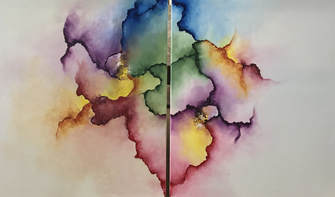 'my heart dances' - painted for me by Peter Kline peterklineart.virb.com 'my heart dances' - painted for me by Peter Kline peterklineart.virb.com (This post was written for the Queer Theology Synchroblog 2018 - check out others' posts here) As I have frequently affirmed. I profoundly agree with John O'Donohue that: once we see God as an artist, everything changes and that: Each of us is an artist of our days; the greater our integrity and awareness, the more original and creative our time will become (in To Bless the Space Between Us: A Book of Blessings). I also continue to hold that, at its best, the church (in the words of the great Catholic Modernist Fr.George Tyrrell) is an 'art school of divine-majesty'. In other words, as a human being, I am both a creative force myself (in the image of God the great creative) and a product of arts of living, belonging and believing which have brought me forth and shape me afresh. In particular, as a trans woman in 'transition', I am an unique art-work. So what kind of 'art-work' am I?... 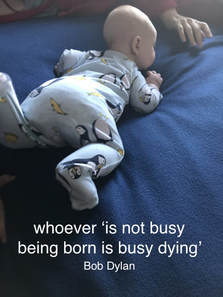 As I complete another full year of my own life, and in the wake of the celebrations of the nativity of Jesus, I have been pondering what it means to be born, spiritually speaking. For birth, like life itself, is easily taken for granted. Actually it is a great mystery, in the best sense of that word. Like gender, it is not simple or straightforward, as many assume. Rather, it is a continuing revelation and developmental process. Indeed I am currently very struck by how my baby grandchild is changing every moment, in response to every encounter and their growing awareness of self. It feels like they are being born afresh, in new ways, every second. Their 'birth' was clearly not finished at their literal entry into this life. Nor is it ever complete for any of us, at least in this life. Rather, each of us, as Bob Dylan once wrote in a notable lyric, is either 'busy being born or busy dying'. Perhaps this is also part of what transgender people have to share with the world in our own (re)birthing?... |
AuthorThe Revd Dr Jo Inkpin: Archives
March 2024
Categories
All
|
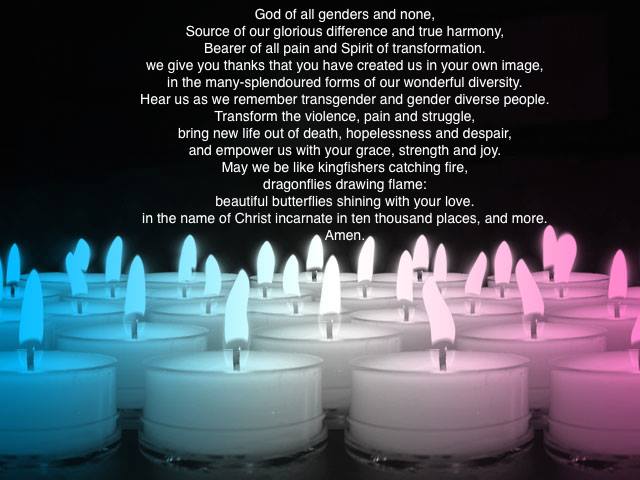
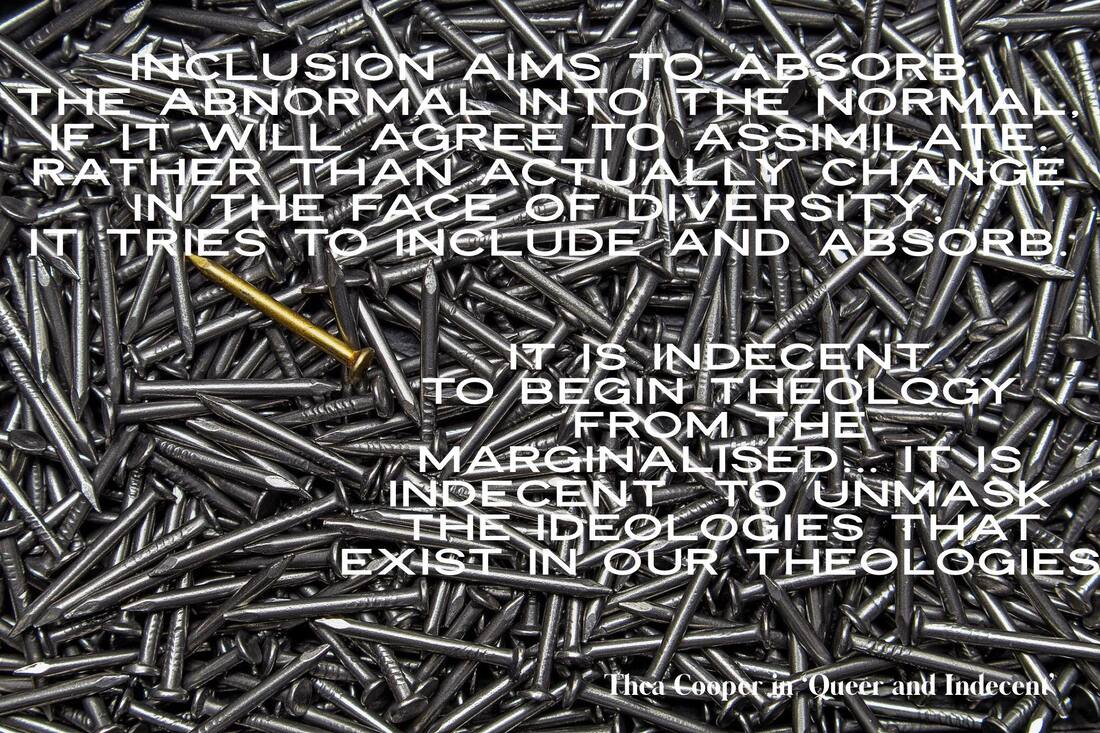
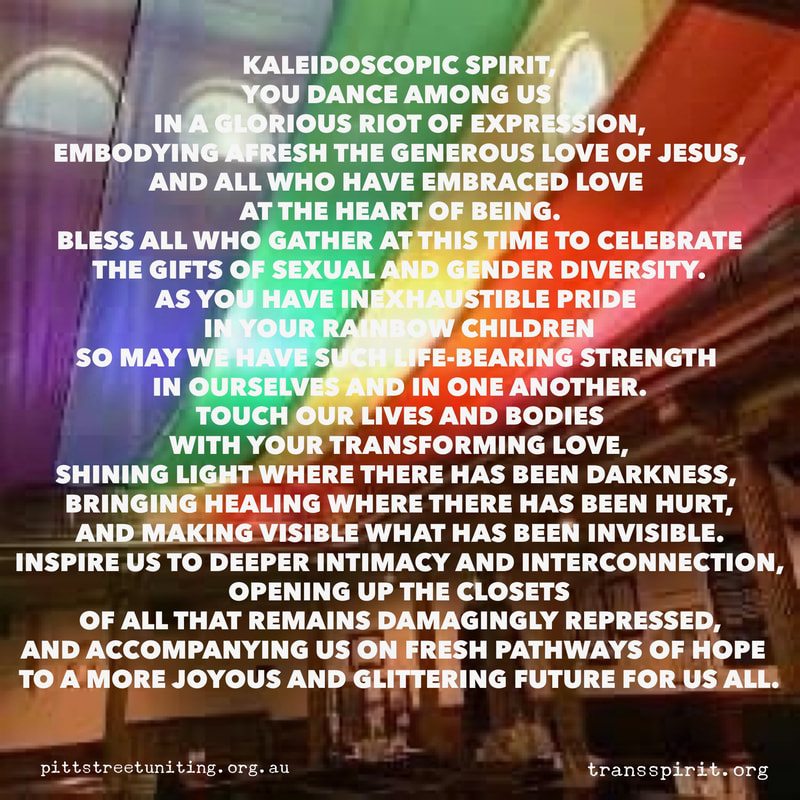
 RSS Feed
RSS Feed